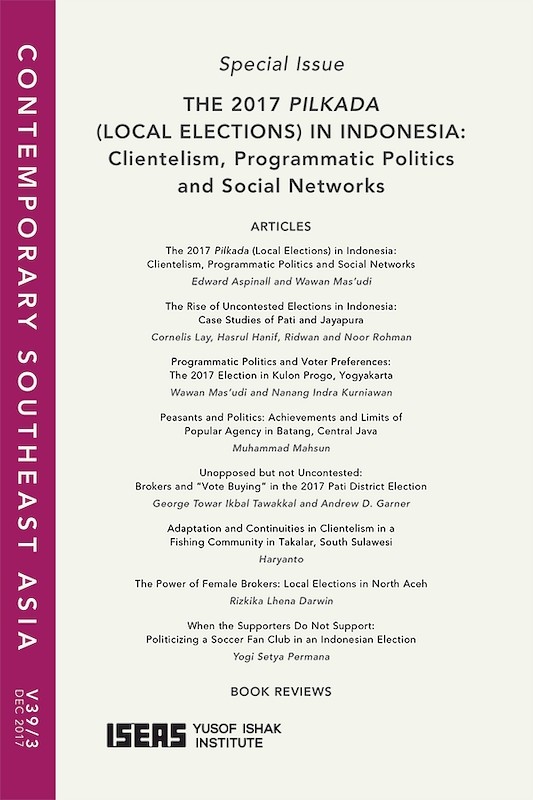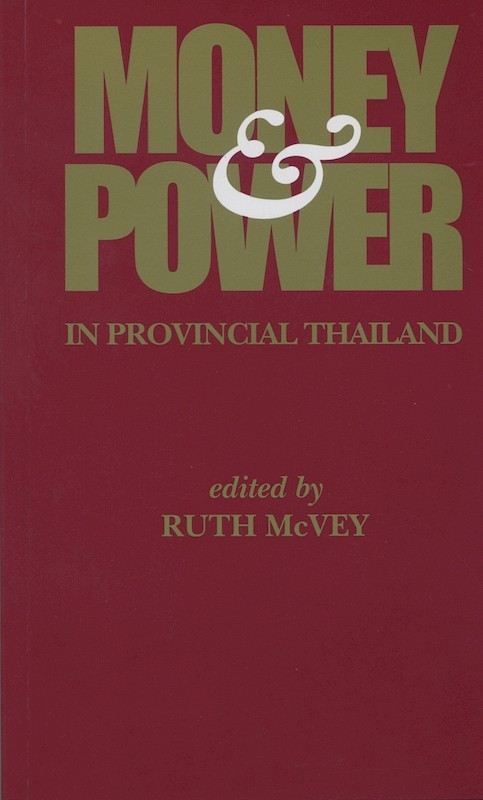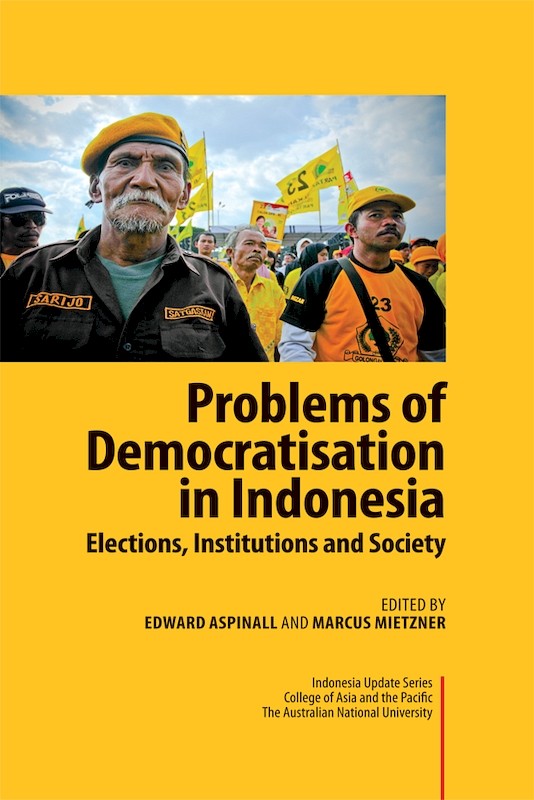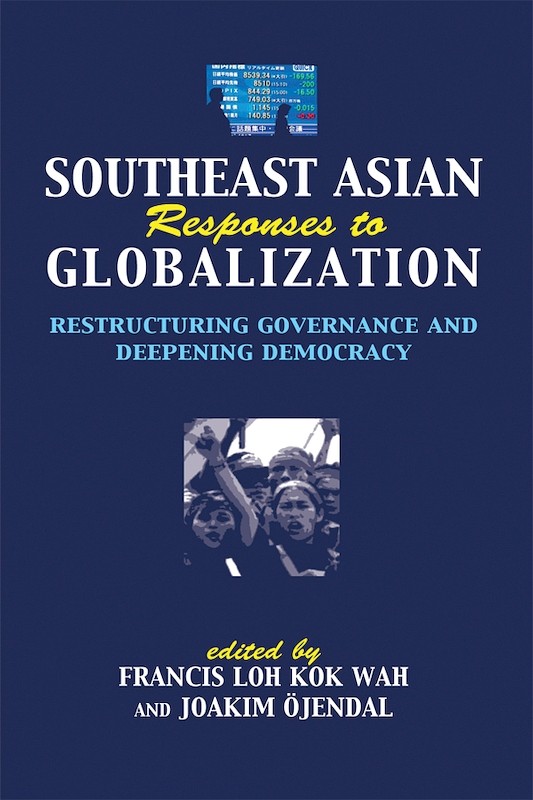Deepening Democracy in Indonesia? Direct Elections for Local Leaders (Pilkada)
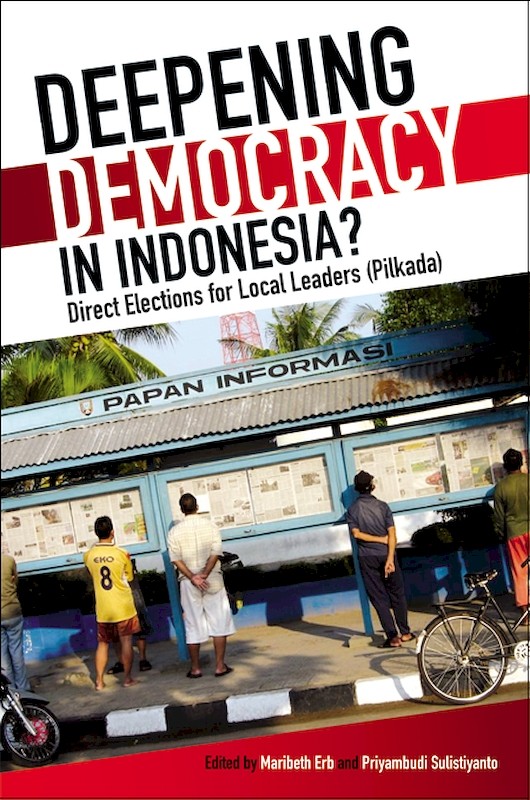
Date of publication:
2009
Number of pages:
392
Code:
PIC177
Reviews
"The contributors take a generally positive view of the impact of local elections on the development of Indonesia's democracy. But they are not blind to the problems. The proliferation of political parties with similar ideological bases has meant that party affiliations are very tenuous. This, toogether with the fact that support at the local level was frequently sold to the highest bidder, led to all kinds of unlikely coalitions. Most authors nevertheless find reason for optimism. Wealth, they note, did not guarantee victory. Instead, the winners tended to be those who were popular or were rooted in their districts. Incumbents who won generally did so because they had performed well in office, while those who lost often had poor records. Indeed, one of the striking characteristics of these elections is the extent to which voters have looked to the personalities and leadership qualities of the candidates rather than the parties or coalitions they represented. Have local elections depeened Indonesia's democracy? The optimistic answer provided by this book is that on balance, they have" (The Straits Times).
"Among the 16 chapters, I particularly recommend the essays of Schiller, Ratnawati, Sulistiyanto, Hill, Erb, Anggal, Smith, Subianto, Mboi and Mietzner to readers interested in Indonesian politics, society, history and culture rather than in political science theory. These authors provide profound insights into the role and significance of the Indonesian pilkada in local socio-political and cultural arenas, rather than simply evaluating the pilkada in relation to general theoretical arguments about democracy" (Bulletin of Indonesian Economic Studies).
About the publication
Since the fall of long-reigning President Soeharto, in 1998, Indonesia has been in an era of transition, away from an authoritarian regime, and on a quest for democracy. This quest started with decentralization laws implemented in 2001, which gave greater autonomy to the regions, and continued with the direct elections for the national and local legislatures and the President in 2004. The latest development in this democratization process is the implementation of a system for the direct election of regional leaders, which began in 2005; the first round of elections across the nation for all governors, mayors and district heads was completed in 2008. Authors of the chapters in this volume, the result of a workshop in Singapore in 2006, present data from across the archipelago for these first direct elections for local leaders and give their assessment as to how far these elections have contributed to a deepening democracy.
Contents
-
Deepening Democracy in Indonesia? Direct Elections for Local Leaders (Pilkada)
[Whole Publication, ISBN: 9789812308429] -
Preliminary pages
-
1. Indonesia and the Quest for "Democracy", by Priyambudi Sulistiyanto, Maribeth Erb, authors
-
2. Pilkada Langsung: The First Step on the Long Road to a Dualistic Provincial and District Government, by Aloysius Benedictus Mboi, author
- PART I: POLITICAL PARTIES, POLITICIAN ELITES AND THE VOTERS
-
3. Political Parties in Pilkada: Some Problems for Democratic Consolidation, by Pratikno, author
-
4. Batam's 2006 Mayoral Election: Weakened Political Parties and Intensified Power Struggle in Local Indonesia, by Nankyung Choi, author
-
5. The Rising Importance of Personal Networks in Indonesian Local Politics: An Analysis of District Government Head Elections in South Sulawesi in 2005, by Michael Buehler, author
-
6. Pilkada, Money Politics and the Dangers of "Informal Governance" Practices, by Syarif Hidayat, author
-
7. Electing District Heads in Indonesia: Democratic Deepening or Elite Entrenchment?, by Jim Schiller, author
-
8. Gender and Reform in Indonesian Politics: The Case of a Javanese Woman Bupati, by Tri Ratnawati, author
-
9. Pilkada in Bantul District: Incumbent, Populism and the Decline of Royal Power, by Priyambudi Sulistiyanto, author
- PART II: MEDIA AND CAMPAIGNS: COMPARING LOCAL AND NATIONAL ELECTIONS
-
10. Pomp, Piety and Performance: Pilkada in Yogyakarta, 2005, by Jennifer Lindsay, author
-
11. Assessing Media Impact on Local Elections in Indonesia, by David T Hill, author
- PART III: CONFLICT, ETHNICITY, AND POLITICAL DIVISIONS
-
12. Autonomy, Democracy, and Internal Conflict: The 2006 Gubernatorial Elections in Papua, by Marcus Mietzner, author
-
13. Conflict and the Growth of Democracy in Manggarai District, by Maribeth Erb, Wilhelmus Anggal, authors
-
14. The Return of the Sultan? Patronage, Power, and Political Machines in "Post"-Conflict North Maluku, by Claire Q. Smith, author
-
15. Ethnic Politics and the Rise of the Dayak-Bureaucrats in Local Elections: Pilkada in Six Kabupaten in West Kalimantan, by Benny Subianto, author
-
16. Bare-Chested Politics in Central Sulawesi: Local Elections in a Post-Conflict Region, by Penelope Graham, Rachel Diprose, authors
-
Index

